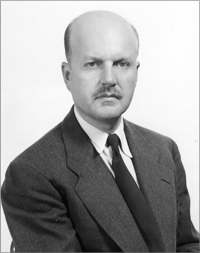Recipients
1962 Professor Lars Onsager, Yale University
1963 Professor Manfred Eigen, Max Planck Institut
1964 Professor Robert S. Mulliken, University of Chicago
1965 Professor Robert B. Woodward, Harvard University
1966 Professor Henry Taube, Stanford University
1967 Professor Joseph E. Mayer, University of California, San Diego
1969 Professor Neil Bartlett, University of California, Berkeley
1971 Professor Paul Flory, Stanford University
1973 Professor Sune Bergstrom, Karolinska Institut
1976 Professor Albert Eschenmoser, Eidgenossische Technische, Hochschule, Zurich
1978 Professor F. Albert Cotton, Texas A&M University
1980 Professor E. J. Corey, Harvard University
1982 Professor Bruno Zimm, University of California, San Diego
1984 Professor Earl Muetterties, University of California, Berkeley
1986 Professor Richard N. Zare, Stanford University
1989 Professor Richard R. Ernst, Eidgenossische Technische, Zurich
1991 Professor Ryoji Noyori, Nagoya University (Japan)
1994 Professor John A. People, Northwestern University
1996 Professor Ahmed Zewail, California Institute of Technology
1998 Professor Peter B. Dervan, California Institute of Technology
2002 Dr. Ad Bax, National Institutes of Health
2005 Professor Robert H. Grubbs, California Institute of Technology
2008 Professor JoAnne Stubbe, Massachusetts Institute of Technology
2010 Professor Peter G. Schultz, Scripps Research Institute
2013 Professor W. E. Moerner, Stanford University
2016 Professor Jennifer Doudna, University of California, Berkeley
2018 Professor Charles M. Lieber, Harvard University
2020 Professor John F. Hartwig, Berkeley College of Chemistry
About John Gamble Kirkwood and The Kirkwood Award
Excerpted from the remarks of Jerome A. Berson on November 21, 1996
